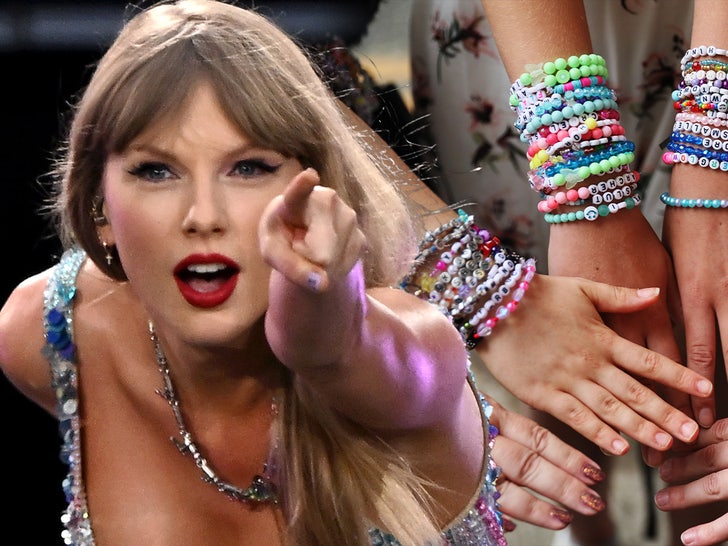President Trump signed an executive order on Tuesday calling for a general review of U.S. funding and involvement in the United Nations, casting uncertainty on the leadership role the United States has played as the global body’s top donor.
“I’ve always felt that the U.N. has tremendous potential,” Mr. Trump said before signing the order in the Oval Office. “It’s not living up to that potential right now.”
Mr. Trump also withdrew the United States from the U.N.’s Human Rights Council and stopped funding the U.N. agency that aids Palestinians, UNRWA, which provides critical humanitarian assistance to millions of people in war-torn Gaza. Those moves were expected because Mr. Trump had withdrawn U.S. involvement from both organizations during his first term as president.
In addition, Mr. Trump’s order called for a review of U.S. involvement in UNESCO, which protects world heritage sites, on allegations that it had exhibited what the White House staff secretary, Will Scharf, called “anti-American bias.” In handing the order to Mr. Trump to sign, Mr. Scharf said it derived from “wild disparity and levels of funding among different countries” that Mr. Trump viewed as “deeply unfair to the U.S.”
In response to the executive order, Stéphane Dujarric, a U.N. spokesman, said U.S. support for the U.N. had advanced global security and that Secretary General António Guterres “looks forward to continuing his productive relationship with President Trump and the U.S. Government to strengthen that relationship in today’s turbulent world.”
The U.N. has been bracing for Mr. Trump’s second term, having already experienced a turbulent period during his first four years in office. Mr. Guterres managed the U.N.’s then-tense relations with Washington by mostly refraining from engaging in public spats with Mr. Trump.
On the first day of his second term, Mr. Trump pulled the United States out of the World Health Organization and the Paris climate agreement.
“Trump’s attacks on UNRWA and the U.N. Human Rights Council were widely expected,” said Richard Gowan, the U.N. director of the International Crisis Group, a conflict-resolution agency. “But the knock-on effects of the administration’s aid freeze,” he added, “are making U.N. officials increasingly nervous.”
In addition to hosting the U.N. headquarters in New York City, the United States is also the agency’s top donor, contributing about 22 percent of its overall budget, followed by China (15 percent) and Japan (8 percent). For 2024, the U.S. contribution was estimated at about $3.6 billion, which goes toward the agency’s administrative and peacekeeping budget.
The United States is also a major donor to various U.N. agencies and the world body’s annual global humanitarian appeal for money to help populations during conflicts and natural disasters. In 2022, the United States contributed about $18 billion to the U.N. across the board. Last year, it paid for 47 percent, or about $14 billion, of the agency’s global humanitarian efforts.
But Mr. Trump on Tuesday criticized the U.N. for what he described as its inability to resolve conflicts raging around the world — ones that he said his administration was trying to address. The U.N. has been widely rebuked for not fulfilling its mandate to mediate and uphold peace in parts of the world.
The U.N. Security Council — a 15-member body responsible for mediating and ending conflicts — has been accused of failing to act on the wars in Ukraine and Gaza because of tensions among its five veto-holding permanent members: Britain, China, France, Russia and the United States. In the case of Ukraine and Gaza, for example, both Russia and the United States have blocked multiple resolutions that attempted to bring an end to the wars.
Mr. Trump, without naming any country, said on Tuesday that the U.N. had not been “fair to countries that deserve fairness.” He most likely meant Israel. Elise Stefanik, Mr. Trump’s pick to be the U.S. ambassador to the U.N., said during her Senate confirmation hearing that the agency had an anti-Israel bias and accused it of antisemitism.
Mr. Trump also speculated, without evidence, that many countries would leave the U.N. if the organization did not change course. He added that the United States, as the top financial backer of the U.N., was not looking to take away money, but that it wanted to push the organization to operate more efficiently.
In practical terms, Mr. Trump’s decisions on UNRWA and U.N. Human Rights Council may not have much of an immediate effect.
The Biden administration stopped funding UNRWA after Israel accused the agency of being widely infiltrated by Hamas. Two U.N. investigations found that about nine of 13,000 of its staff members in Gaza were affiliated with the militant group, and they were fired.
As for the U.N. Human Rights Council, a spokesman said the United States was not currently among the Geneva-based council’s 47 voting members, therefore the decision to withdraw had little effect on the agency’s work. The council authorizes investigations, applies pressure to hold authoritarian governments accountable and debates violations in countries like Russia, Myanmar, Iran and North Korea.
The United States gave up its membership in the council at the end of 2024, under the Biden administration. But as an observer state, it was still entitled to participate in council deliberations and could still, if it chose to, play an influential role by speaking in debates and shaping the content of council resolutions.
A critical test of the Trump administration’s intentions will come later this year, when the United States is due to undergo a council review of its human rights record, a process in which every U.N. member state has taken part. A U.S. decision not to partake in the next review, set for November, would deal a severe blow to the council’s credibility and open the way to dictatorial states to similarly avoid scrutiny.
Rights groups said that a complete withdrawal means the United States would be absent in these discussions, a notion that they said sends the wrong message.
“President Trump’s performative decision to pull the U.S. out of the H.R.C. signals to the rest of the world that the U.S. is happy to completely cede important decisions about human rights violations happening across the globe to other countries,” said Amanda Klasing, the national director of Amnesty International USA.
Nick Cumming-Bruce contributed reporting.



